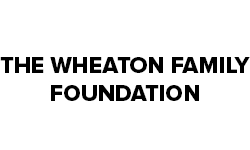CITIZENSHIP STUDIES GRADE 9: CITIZENS CONNECTED TO SELF, COMMUNITY, AND PLACE
Part A
Broad Area of Citizenship
Overview and Desired Results of Citizenship Study
Enduring Understandings of Citizenship Study
As students seek to understand the relationship between culture, the use of land and resources, and the impacts of historical events, they begin to appreciate personal and cultural identities and acknowledge their influences on any contemporary society.
Students will understand that:
- History and current events are understood through diverse historical perspectives.
- Democracy requires discussion and consideration of alternate points of view in order to find a balance between individual perspectives.
- Citizens value the needs of the collective common good and consider how their actions impact the collective well-being.
- Canadian multi-cultural policies challenge citizenship tenets and require consideration of multiple perspectives.
- Canada’s history includes First Nations, Métis, and Inuit governance and perspectives and each have contributed to Canadian identity.
- Decision-making is a complex process with far-reaching impacts.
- Engaged citizens strive to be knowledgeable, uphold their rights, and act on their responsibilities.
Inferences to make:
- Empathy requires understanding and appreciation of another’s perspective.
- Citizens value the need of the collective common good and consider how their actions impact the collective well-being.
- Citizens will develop the ability and willingness to contribute to collective well-being through their personal and collective decisions and actions.
- Enduring understandings and questions stimulate thinking, guide the inquiry and are linked to outcomes.
- They point to the “big ideas” in the area of inquiry and should be considered and reconsidered as the inquiry progresses.
- Answers to these questions form the evidence of learning at the end of study.
Knowledge and Skill Development
- Expand/extend a sense of identity with respect to local, regional, national, and global diversities;
- Exhibit an awareness and understanding of natural environmental issues on a local, regional, national, and global level; and,
- Model being active and responsible citizens.
Essential Questions
- What is government’s responsibility to ensure common good?
- How should citizens respond to marginalization?
- How does the impact of the environment affect the development of society?
- What are the impacts of supporting my life-style on the local and global community?
- What role does empathy play in Citizenship?
- What does it mean to be Canadian?
Curriculum Outcomes and Indicators
Sask. Curriculum Outcomes: Student Friendly Outcomes
DR9.3
Assess the relationship of the natural environment in the development of a society.
Student Friendly: Evaluate the relationship between the natural environment and the development of a society.
Indicators:
- Explain the influence of the major water systems, the topography, and the climate on the ways of life and worldviews in the societies studied.
- Connect the characteristics of the natural environment with the settlement and movement of people in the societies studied.
- Give examples of ways in which the natural environment influenced technological development in the societies studied.
- Give examples of ways in which the development of societies studied impacted the natural environment.
- Explain the effect of the natural environment in the progress or decline of the societies studied.
- Analyze the influence of the natural environment on the territorial expansion, colonization, or empire-building in the societies studied.
- Analyze the effects of colonization, territorial expansion, and empire-building on the natural environment.
PA 9.3
Investigate the roles and responsibilities of members of the societies studied and those of citizens in contemporary Canada.
Indicators:
- Differentiate the criteria for citizenship in the societies studied with that in contemporary Canadian society.
- Investigate examples of the oppression of rights of particular groups or individuals in societies studied including examples in Canada (e.g., slavery, limited franchise, restrictions on property ownership).
- Examine the rights and responsibilities of people, as they existed within the societies studied, and compare findings to contemporary Canadian society.
- Explain the means to achieving rights in the societies studied, and compare this to contemporary Canadian society.
- Compile an inventory of the diverse roles and responsibilities of people within the societies studied, according to various classifications (e.g., gender, age, vocation, social class).
- Compare roles within societies studied to those in contemporary Canadian society.
PA9.2
Analyze the impact of empire-building and territorial expansion on indigenous populations and other groups in the societies studied.
Student Friendly: Research and analyze the events of empire-building and territory expansion on the indigenous population of a society.
Indicators:
- Research the imperial activities of a society studied, and critique the reasons for imperialism in the context of the time period (e.g., Macedonia, Rome, England, Spain, France, Mongolia).
- Assess the treatment of indigenous populations by the imperialists in the societies studied.
- Conduct an inquiry regarding the initial interaction of North American Aboriginal peoples with Europeans, comparing the worldviews of the two.
- Evaluate the authenticity and validity of information sources used in the inquiry process.
© 2023 Concentus Citizenship Education Foundation Inc. All Rights Reserved.









